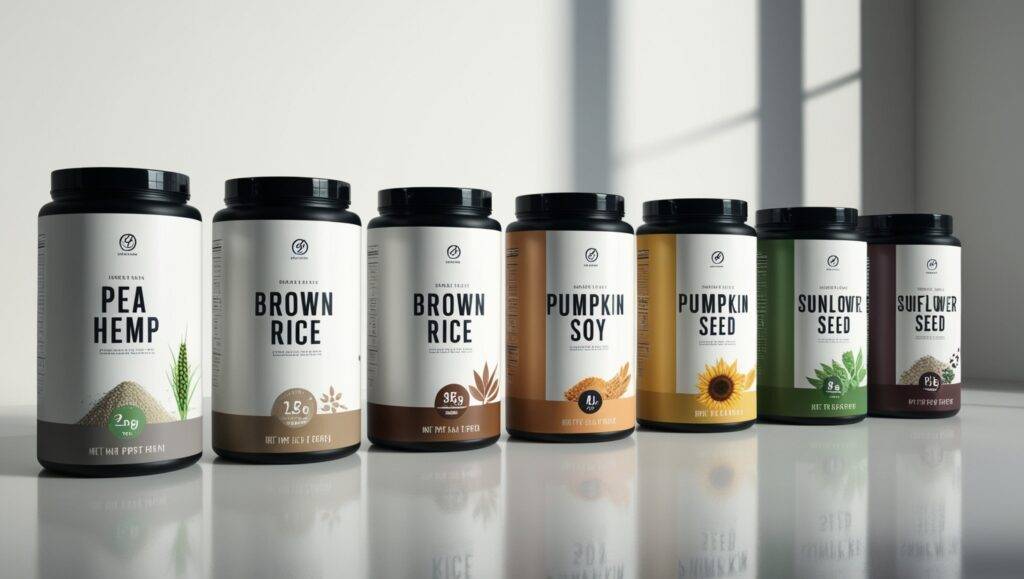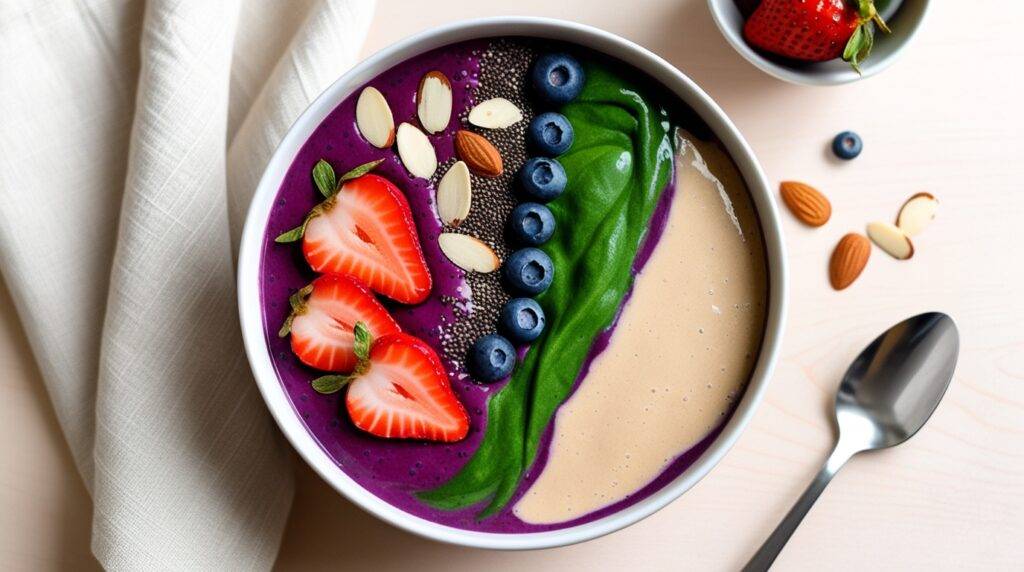Are you tired of sifting through endless options in the protein powder aisle? Look no further! This comprehensive guide will unveil the secrets of plant-based protein powders, helping you make an informed decision for your health and fitness journey. We’ll compare seven top contenders, answer your burning questions, and give you the scoop on which powder reigns supreme. Get ready to power up your smoothies and fuel your gains with nature’s finest!
Introduction
Plant-based diets are skyrocketing in popularity, and for good reason. They’re not just great for the environment; they’re also packed with health benefits. But one question keeps popping up: “How do I get enough protein?” Enter plant-based protein powders – the convenient, versatile solution to your protein needs.
In this article, we’ll dive deep into the world of plant-based protein powders, comparing their pros and cons, and helping you find the perfect match for your lifestyle. Whether you’re a seasoned vegan or just dipping your toes into the plant-based pool, we’ve got you covered.
The Plant-Based Protein Powder Lineup

1. Pea Protein: The Muscle-Building Powerhouse
- Pros: High in branched-chain amino acids (BCAAs), easily digestible.
- Cons: It can have a slightly earthy taste.
2. Hemp Protein: The Omega-3 Champion
- Pros: Rich in omega-3 fatty acids, contains all 9 essential amino acids.
- Cons: Lower protein content compared to other options.
3. Brown Rice Protein: The Hypoallergenic Hero
- Pros: Easily digestible, rarely causes allergic reactions.
- Cons: Lower in lysine (but can be combined with other proteins).
4. Soy Protein: The Complete Protein Package
- Pros: Complete protein profile, which may help lower cholesterol.
- Cons: Some concerns about GMOs and phytoestrogens (though research is mixed).
5. Pumpkin Seed Protein: The Mineral-Rich Newcomer
- Pros: High in zinc and iron, great for skin health.
- Cons: Lower protein content, can be more expensive.
6. Sunflower Seed Protein: The Allergy-Friendly Option
- Pros: Nut-free, rich in vitamins and minerals.
- Cons: Not as widely available as other options.
7. Mixed Plant Protein: The Best of All Worlds
- Pros: Balanced amino acid profile, often includes added nutrients.
- Cons: It can be more expensive, and may have a complex taste.
Frequently Asked Questions
Are plant-based proteins as effective as whey for muscle building?
Absolutely! Recent studies have shown that plant-based proteins, especially pea and rice protein blends, can be just as effective as whey for building muscle mass and strength when combined with resistance training.
How much protein do I need per day?
The general recommendation is 0.8 grams of protein per kilogram of body weight for the average adult. However, athletes and those looking to build muscle may need up to 1.6-2.2 grams per kilogram.
Can plant-based protein powders cause bloating?
Some people may experience bloating when first introducing plant-based proteins. To minimize this, start with smaller servings and gradually increase. Also, look for powders with added digestive enzymes.
Are plant-based proteins complete proteins?
Not all plant-based proteins are complete, meaning they don’t contain all nine essential amino acids. However, mixed plant proteins or combining different plant sources throughout the day can easily provide a complete amino acid profile.
Key Insights
Protein Quality Matters: Look for powders with a high Protein Digestibility Corrected Amino Acid Score (PDCAAS). Pea and soy proteins often score highest among plant-based options.
Nutrient Density: Many plant-based protein powders offer more than just protein. They’re often rich in fiber, vitamins, and minerals, giving you more nutritional bang for your buck.
Sustainability Factor: Plant-based proteins generally have a lower environmental impact compared to animal-based proteins. Choosing plant-based can be a win for both your health and the planet.
Taste and Texture: Let’s be honest – taste matters. Experiment with different flavors and brands to find one you enjoy. Many brands now offer sample packs to help you discover your favorite.
Added Ingredients: Be wary of powders with excessive added sugars or artificial sweeteners. Look for products with minimal, clean ingredients.

Conclusion
Choosing the right plant-based protein powder doesn’t have to be a headache. By considering factors like amino acid profile, taste, and additional nutrients, you can find the perfect powder to support your health and fitness goals.
Remember, the best protein powder is the one you’ll actually use consistently. Don’t be afraid to mix it up – try different types and brands until you find your perfect match. Always pair your protein intake with a balanced diet and regular exercise for optimal results.
So, are you ready to power up your plant-based journey? Grab a shaker bottle, choose your protein, and get ready to feel the difference. Your muscles (and taste buds) will thank you!

